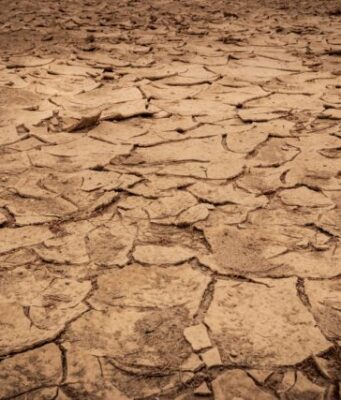A new study published in the peer-reviewed journal Nature Climate Change finds that if Bitcoin is implemented at similar rates at which other technologies have been incorporated, it alone could produce enough emissions to raise global temperatures by 2°C...
As the Mediterranean Basin is experiencing the impact of climate change more than ever, an international network of scientists has worked together to synthesize the effects of climate change and environmental problems, as well as the incurred risks, in...
The compound, carbon tetrachloride, contributes to the destruction of the Earth's ozone layer, which protects us from harmful ultraviolet radiation.
As a result, the production of carbon tetrachloride has been banned throughout the world since 2010 for uses that will...
If everyone on the planet wanted to eat a healthy diet, there wouldn't be enough fruit and vegetables to go around, according to a new University of Guelph study.
A team of researchers compared global agricultural production with nutritionists' consumption...
Noise levels in the world's oceans are on the rise, but little is known about its impact on marine mammals like dolphins that rely on sound for communication. Researchers from the University of Maryland Center for Environmental Science laid...
Researchers have found that global changes, including warming temperatures and increased levels of carbon dioxide in the atmosphere, are causing a decrease in the availability of a key nutrient for terrestrial plants. This could affect the ability of forests...
A new collaborative study has investigated Arctic shrub-snow interactions to obtain a better understanding of the far north's tundra and vast permafrost system. Incorporating extensive in situ observations, Los Alamos National Laboratory scientists tested their theories with a novel...
Climatologists may be unable to accurately predict regional climate change over the North Atlantic because computer model simulations have failed to accurately include air pressure changes that have taken place in the Greenland region over the last three decades.
This...
While temperatures in the tropical forests of northeastern Puerto Rico have climbed two degrees Celsius since the mid-1970s, the biomass of arthropods—invertebrate animals such as insects, millipedes, and sowbugs—has declined by as much as 60-fold, according to new findings...
Severe climate events could cause shortages in the global beer supply, according to new research involving the University of East Anglia (UEA).
The study warns that increasingly widespread and severe drought and heat may cause substantial decreases in barley yields...
Shelled marine creatures living in increasingly acidified oceans face a fight for survival as the impacts of climate change spread, a new study suggests.
Researchers from the University of Tsukuba, Japan, and the University of Plymouth, UK, assessed the impact...


















